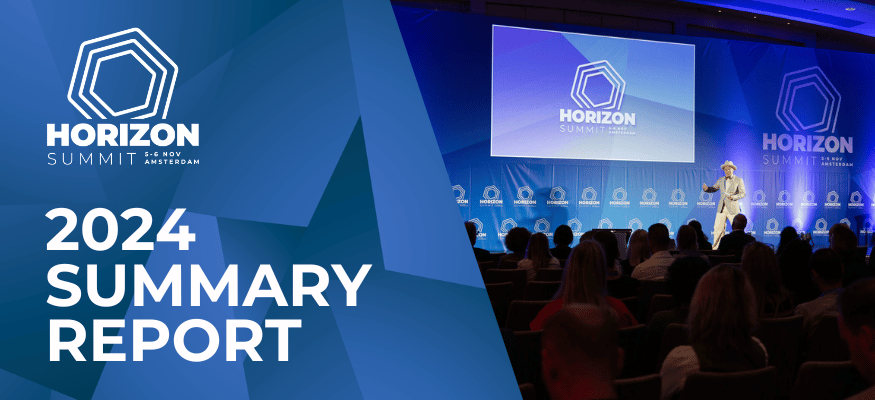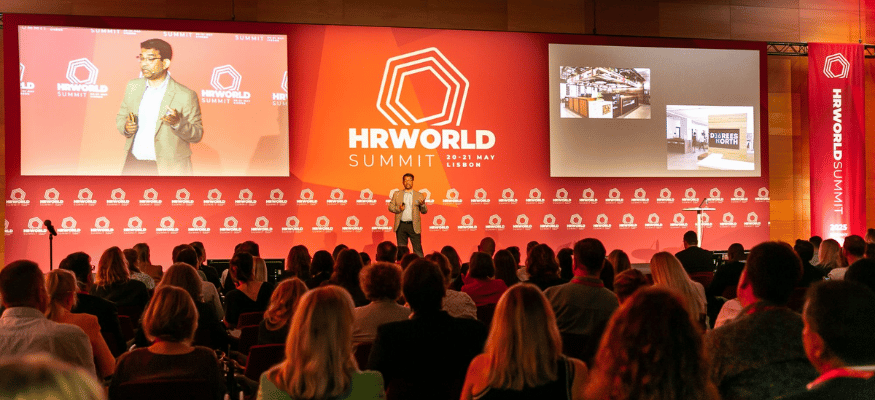How artificial intelligence is reshaping HR—and what leaders need to do about it
The Horizon Summit 2025, places AI at the center of the conversation. Across multiple sessions, experts and practitioners will explore what it means to lead HR in an AI-enabled world—not just in terms of tools and efficiency, but in navigating ethical responsibility, human judgment, and long-term organizational impact.
One of the biggest challenges HR faces is closing the gap between AI’s promise and its real-world outcomes. AI systems have been promoted as solutions to hiring bias and talent prediction, yet in many cases, they reinforce the very inequities they aimed to eliminate. As discussed in the session “The Promise Trap,” leaders are grappling with algorithmic decisions they can’t always explain, candidate experiences that feel impersonal or unfair, and outcomes that risk eroding trust.
AI can surface patterns faster than humans, but understanding those patterns and deciding when to trust them requires a different skill set. That’s the core of what Martin Barner of Sandoz will explore in “The Control Paradox.” As AI systems grow more complex, even beneficial ones can surpass our ability to interpret their logic. This introduces a new governance challenge: how to maintain human accountability when decisions are increasingly made—or at least shaped—by systems we don’t fully understand.
Rather than replacing HR, AI is pushing the profession to evolve. Carlo Steenvoorden of KPN argues that this isn’t the end of HR but a transformation of its purpose. As automation takes over routine tasks, HR’s role shifts toward enabling growth, purpose, and well-being—areas where human leadership remains irreplaceable. HR must now help organizations navigate both the technical and emotional transitions that AI creates.
This tension between automation and empathy becomes especially clear in talent management. AI is increasingly used to identify high-potential employees, predict turnover, and even suggest successors for leadership roles. But when AI amplifies everyone’s performance—making average workers seem exceptional—it becomes harder to recognize true talent. The session “Identifying Peak Talent When AI Levels the Playing Field” addresses this concern, asking how HR can distinguish between machine-boosted competence and genuine capability.
Leadership development faces a similar dilemma. With AI handling many entry-level tasks, the traditional career ladder is breaking down. Junior roles that once served as proving grounds for future leaders are disappearing. Riccardo Falconi of Hunter Douglas will discuss how this shift is forcing organizations to rethink how they build leadership pipelines. If operational experience is increasingly automated, where will tomorrow’s leaders learn to lead?
The human-machine relationship is also transforming the essence of leadership itself. In a world where algorithms perform tasks and humans set direction, emotional intelligence, adaptability, and vision become essential skills. Coaching leaders for this new environment requires rethinking traditional approaches. One session will explore how executives can manage teams that include both people and predictive systems—and what kind of coaching supports this new hybrid responsibility.
While much of the discussion focuses on theory and caution, Horizon Summit 2025 also offers practical tools for action. The masterclass “AI in HR: From Hype to High-Impact,” led by Dan Strode (formerly of Banco Santander), provides a hands-on framework for identifying where AI can add value in HR. Participants will leave with a tailored 30-day pilot plan and practical strategies for bias mitigation, compliance, and risk management. It’s an opportunity not just to learn about AI but to implement it.
Across all these discussions, a few themes consistently emerge. First, AI is not neutral; it reflects the assumptions and structures of its creators. Second, governance matters. HR must play a central role in ensuring AI is implemented fairly, transparently, and aligned with organizational values. And third, human judgment becomes more—not less—important in an AI-driven workplace. As machines take over more tasks, HR’s unique ability to interpret nuance, build trust, and connect meaningfully becomes its most strategic asset.
The Horizon Summit won’t provide easy answers, but it will create space for honest, high-level dialogue that HR needs. As AI continues to advance, the opportunity isn’t just to automate faster but to lead better.
For those shaping the future of work, the conversation starts here.








